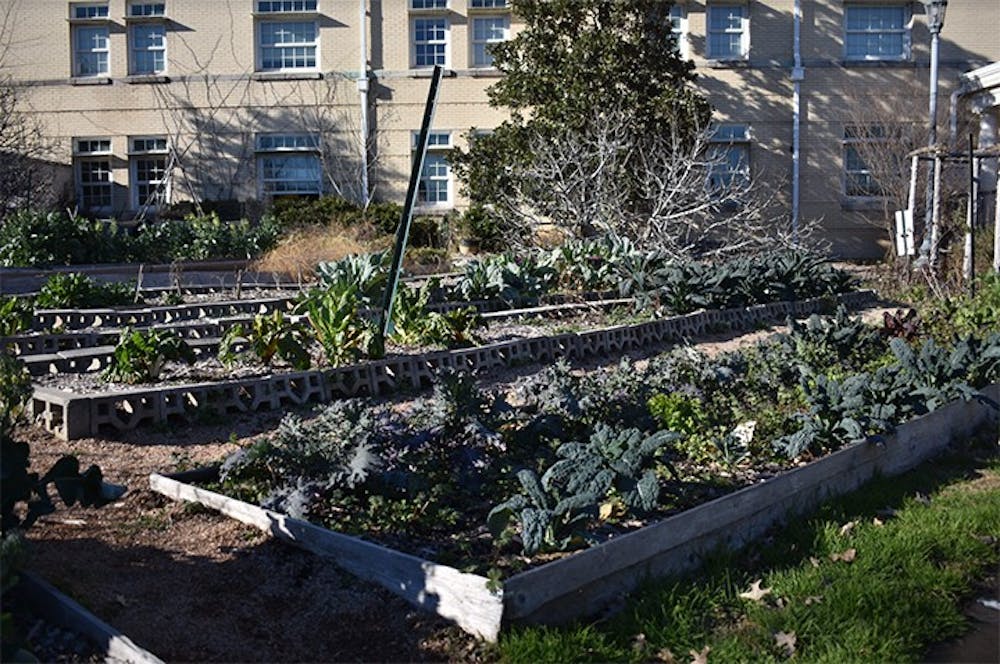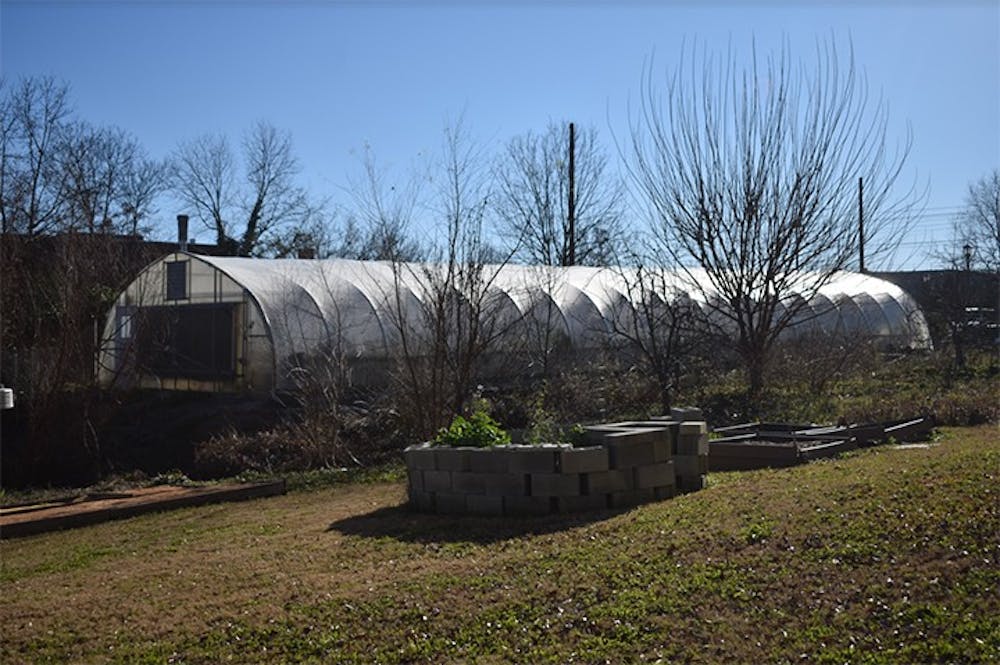The Sustainable Carolina Leadership Program, also referred to as Sustainable Carolina, works to promote sustainability on USC’s campus.
The organization functions as a student branch of the university’s Office of Sustainability, rather than a traditional student organization completely separate from the university.
“We all are a small office, we really rely on the passionate students that we have to support the work that we're doing and the work that they want to see on our campus,” Grace Kazmierski, the Office of Sustainability's assistant director for student engagement, said.
The program is made up of six different teams with different focus areas, according to Kazmierski. These areas include environmental education, zero waste, food systems and events and outreach.
“Sustainable Carolina is actually a leadership program," Kazmierski said. "So students apply to get into the program, and then we review applications, we do interviews and then they're assigned to a project team.”
Claire Windsor, a third-year global studies student and member of the leadership program, said the direct connection to the university’s office makes it easier to communicate about projects and initiatives.
“You're a Sustainable Carolina intern with the backing of the Office of Sustainability contacting people that they've already been in contact with, and it's a little bit more of a legitimate form of communication,” Windsor said.

A staple program of Sustainable Carolina is the Sustainable Carolina Garden, which gives students a chance to grow crops and participate in the local produce trade. Some of these crops are sold to local vendors such as the McCutchen House and the campus farmer's market or donated to the Carolina Food Pantry.
“That's located behind Green Quad residence hall, and it's a permaculture garden, so that means that the crops are strategically planted to support one another,” Kazmierski said.
Garden manager Sadia Pollard said students volunteering in the garden are assisted in those responsibilities by “garden guides.”
“They have done work in the garden formerly," Pollard said. "And so now, they just lead volunteers; give them guidance; someone to help people along; and then, I'm always there as well, just to — again, troubleshooting issues.”
The garden has been a valuable resource to students during the pandemic, Pollard said.
“When we're living in a time where it's not really safe to be in close, close proximity to people inside, being outdoors is a lot safer right now with like, constant airflow,” Pollard said.
Pollard also said the garden is a relaxing place on campus for students.
“We're not in a rush; students can work at any pace they want to. So, I think that's why it's just a great place to relax to put your mind in a different state outside of academics and also a great way to be a part of this campus and to make something really beautiful,” Pollard said.
Sustainable Carolina also has other programs to promote sustainability, such as a Green Career Fair and Green Networking Breakfast, for students to make connections and look for careers based in sustainability. Some of these programs, though, couldn't take place this year due to the pandemic, Kazmierski said.
Larry Cook, director of the Office of Sustainability, said a long-term goal for Sustainable Carolina is to continue working with the university and student body to have a voice in sustainability practices.
“We've been able to reconvene the president's council on sustainability, which is an interdisciplinary group of students, faculty and staff who can kind of advise the office on the direction that we feel like our efforts in sustainability should go,” Cook said.
Windsor said she noticed a growing interest in sustainability. If students don't want to apply for the leadership side of the program, they can also volunteer.
“I definitely think there's growing momentum for what's been kind of coined as the ‘sustainability movement,’ or just even growing awareness about what climate change is or what it means for the future. There is still definitely, though, a lot of gaps in terms of people understanding that the science behind it may be or what it really means for them, specifically,” Windsor said.

